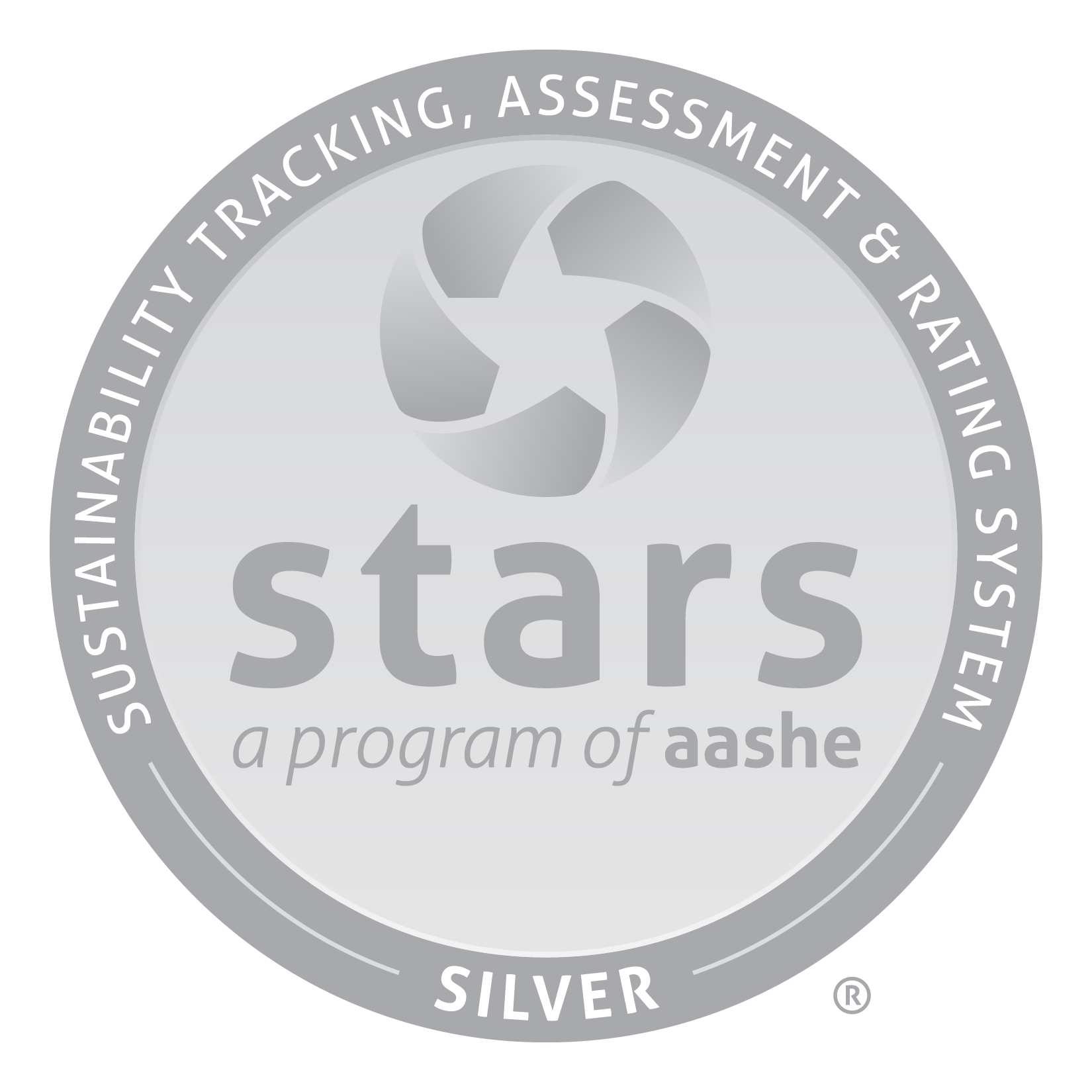An even shinier Silver for sustainability
 UMass Chan Medical School boosted its sustainability score and earned a new three-year Silver designation from the Sustainability Tracking, Assessment & Rating System (STARS), a program run by the Association for the Advancement of Sustainability in Higher Education.
UMass Chan Medical School boosted its sustainability score and earned a new three-year Silver designation from the Sustainability Tracking, Assessment & Rating System (STARS), a program run by the Association for the Advancement of Sustainability in Higher Education.
STARS is a comprehensive self-reporting framework for colleges and universities to measure their sustainability. STARS now has more than 900 participants in 40 countries, making it the global standard for higher education sustainability metrics.
“Increasing our score and sustaining a silver designation for an institution like ours is really a great achievement,” said Kortni Wroten, sustainability and energy manager at UMass Chan, who coordinated the STARS process this year. “We have energy intensive buildings for research and clinical care, so it’s always going to be more of a challenge for us, but the commitment from the whole community to make progress is real.”
The Medical School first went through the STARS assessment process in 2016 and earned a Bronze rating, with a total of 28.17 points across a range of specific categories. In 2020, after compiling three years of data and documenting numerous sustainability initiatives, UMass Chan’s score rose to 46.18 total points, elevating the campus to Silver status. This year, the campus earned 56.01 points.
“STARS was developed by the campus sustainability community to provide high standards for recognizing campus sustainability efforts,” AASHE Executive Director Meghan Fay Zahniser said in a prepared statement. “UMass Chan Medical School has demonstrated a substantial commitment to sustainability by achieving a STARS Silver rating and is to be congratulated for their efforts.”
The new STARS assessment recognized the school’s development of a five-year Sustainability and Climate Action Plan, which has four areas of focus: transportation, buildings and energy, grounds and water management, and materials and resource management. Each focus area has a schedule of specific initiatives to foster progress toward the five-year goals. For example, on transportation, UMass Chan is now committed to reducing emissions of the vehicles it uses on campus by 50 percent.
The community is also taking steps to reduce emissions that result from commuting to campus. As a research-intensive campus with a clinical component, energy needs are significant, so the plan calls for continued implementation of an energy-use metering and validation program for specific buildings, as well as to increase energy conservation and recovery in all facilities. Regarding materials and resource management, the campus is committed to reducing the solid waste it generates by 20 percent.
The medical school also earned STARS points for launching a decarbonization program to develop an actionable plan that will enable the Worcester campus to reach carbon neutrality greenhouse gas emissions by 2035-2040.
“I want to express my gratitude to all the departments at UMass Chan that contributed to the holistic assessment of sustainability of our institution,” David Flanagan, deputy executive vice chancellor of facilities, wrote in STARS submittal letter. “I could not be prouder of the initiative and progress our university achieves daily in the fields of sustainability and health care.”
Read the full UMass Chan STARS report.
